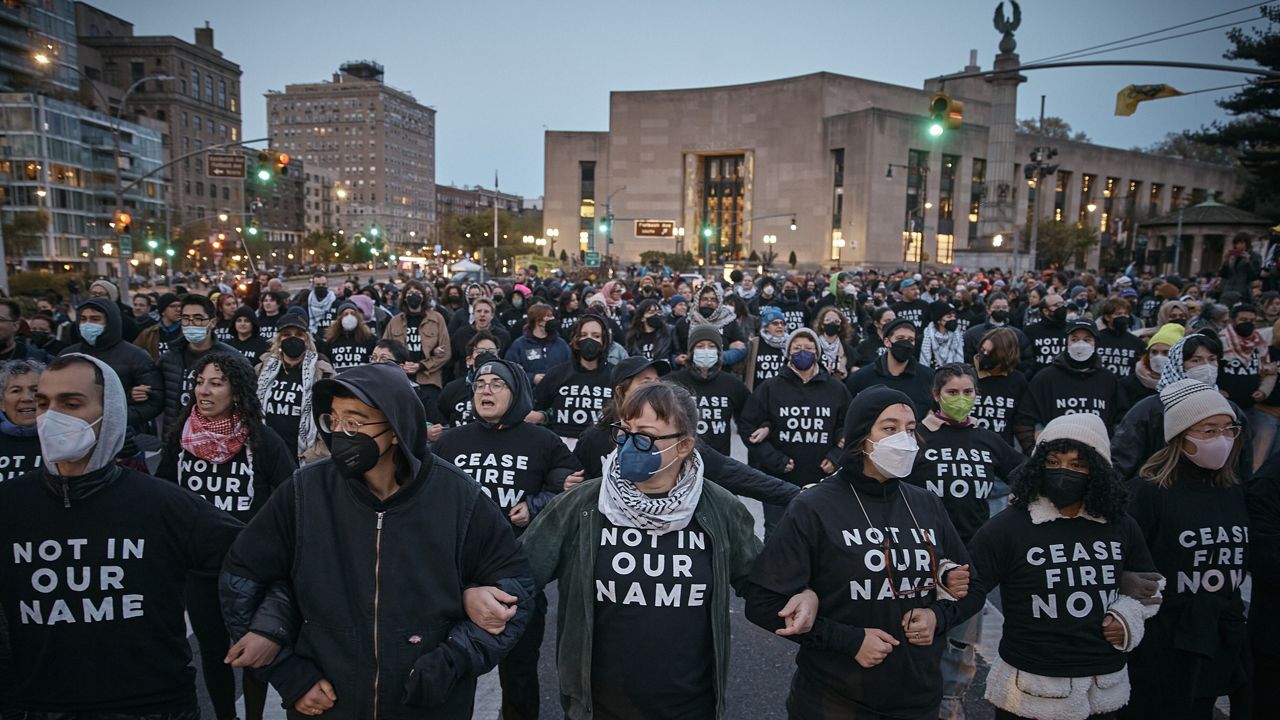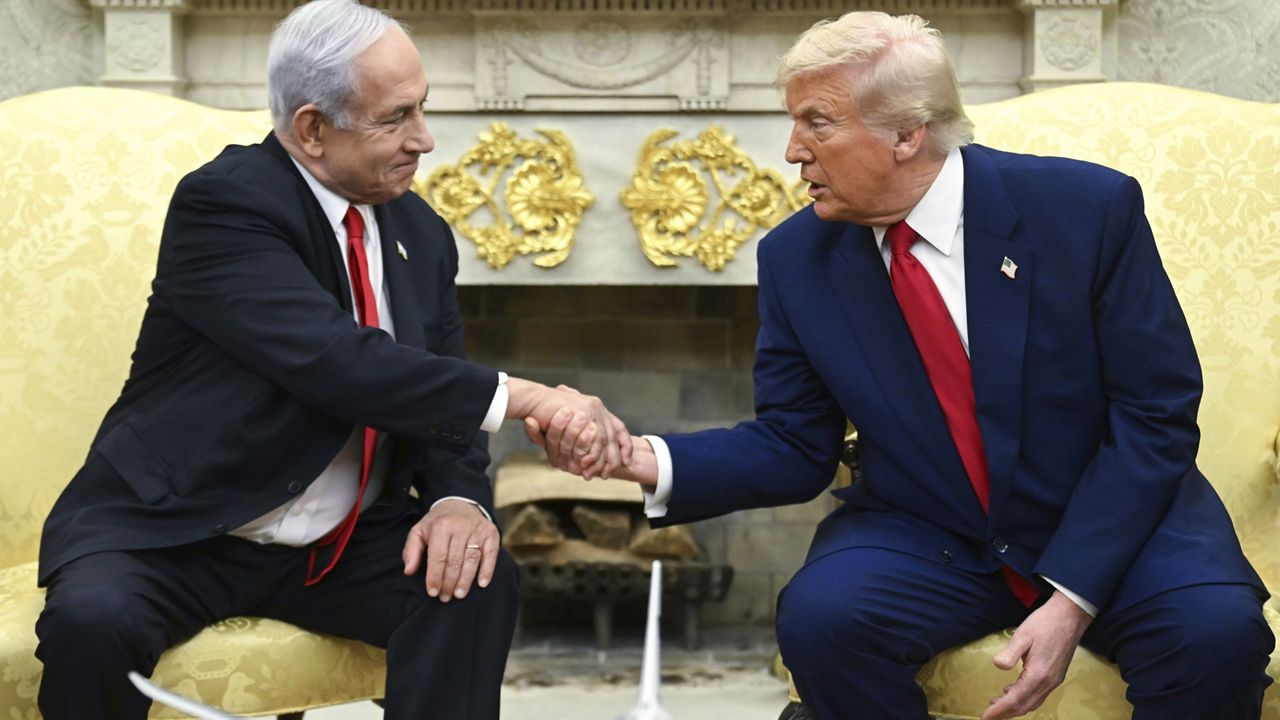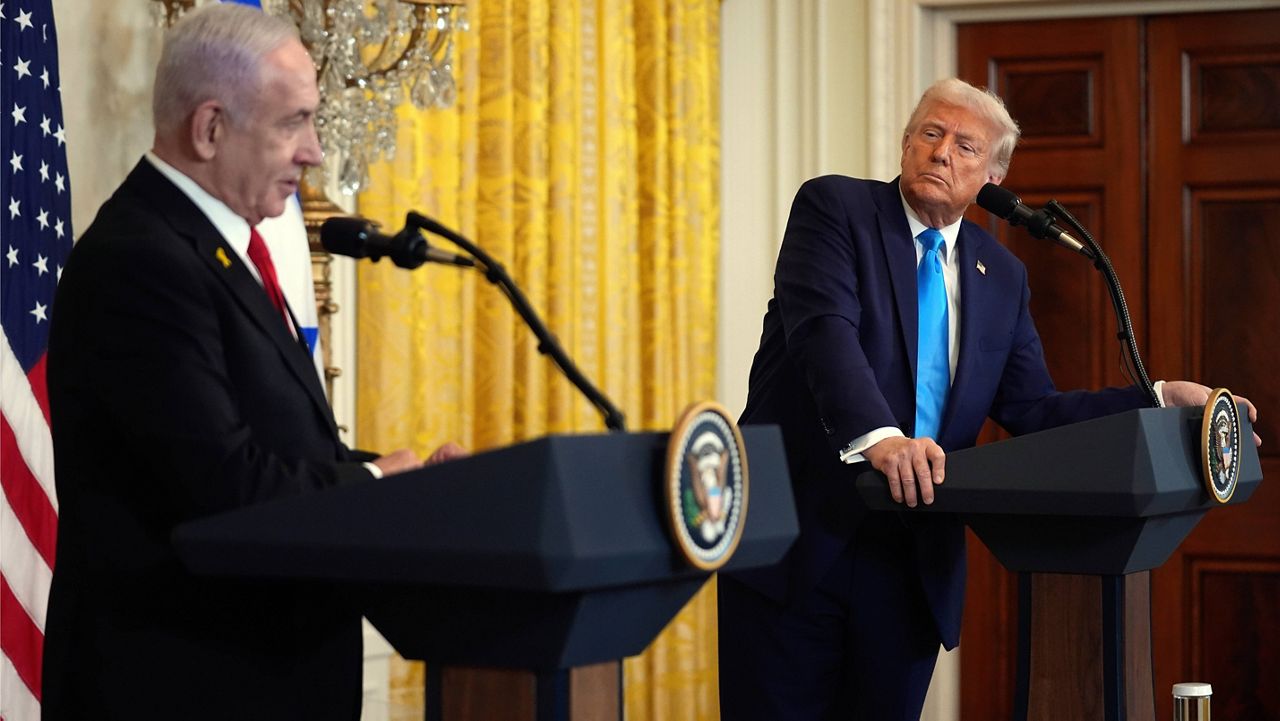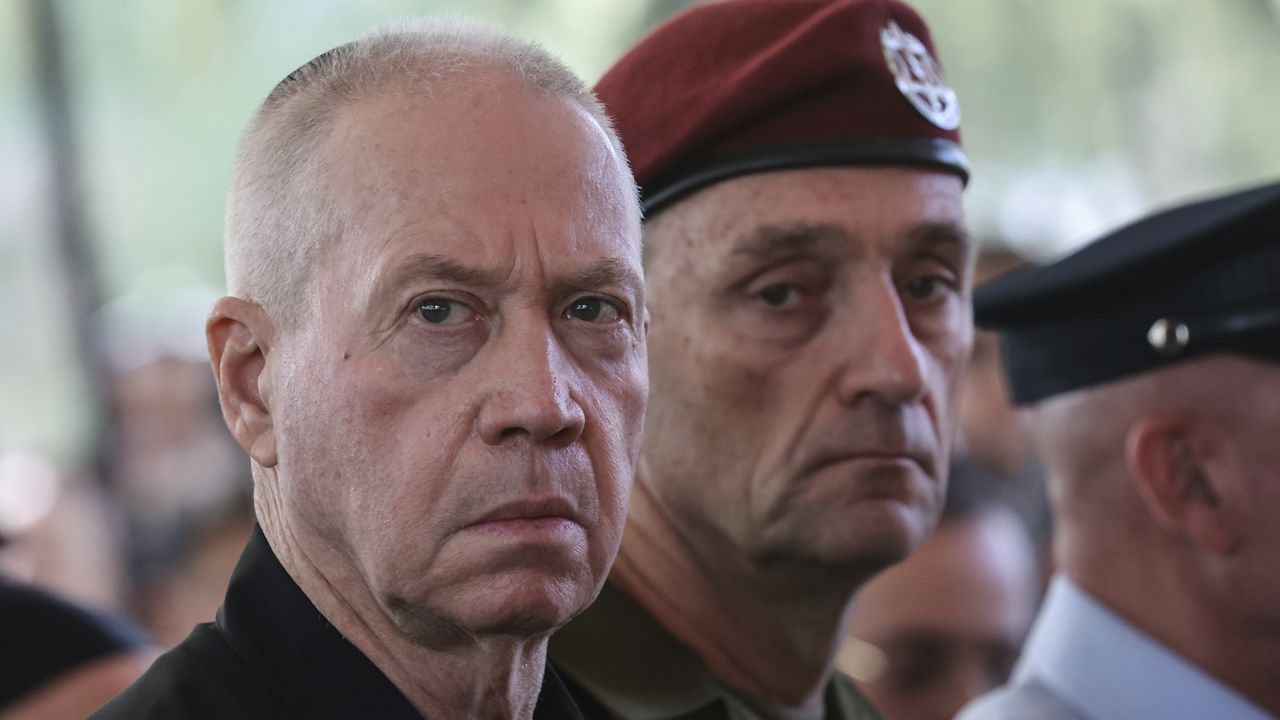In a statement on Tuesday, Director of National Intelligence Avril Haines said that “Iranian government actors” have attempted to stoke protests related to the war between Israel and Hamas in Gaza.
"We have observed actors tied to Iran’s government posing as activists online, seeking to encourage protests, and even providing financial support to protesters,” Haines said.
Demonstrations across the country and around the world have surfaced repeatedly since the war in Gaza began on Oct. 7, when Hamas militants killed about 1,200 people in a surprise attack on Southern Israel, including hundreds attending a music festival. The war, which reached the nine month mark this week, has seen 38,000 Palestinians killed, according to Gaza’s health ministry.
Those demonstrations roiled college campuses earlier this year — though many were peaceful, several turned violent — sparking a nationwide debate about antisemitism in higher education.
Haines and other security officials testified before Congress in May that November’s election faces a higher number of threats than ever before, with foreign adversaries harnessing innovations in artificial intelligence to spread online disinformation, mislead voters and undermine trust in democracy.
Tehran, Haines said Tuesday, “is becoming increasingly aggressive in their foreign influence efforts, seeking to stoke discord and undermine confidence in our democratic institutions, as we have seen them do in the past, including in prior election cycles.”
“They continue to adapt their cyber and influence activities, using social media platforms and issuing threats,” she said. “It is likely they will continue to rely on their intelligence services in these efforts, as well as Iran-based online influencers, to promote their narratives.”
Haines said that Iranian government actors have “opportunistically” sought to take advantage of Gaza protests, “using a playbook we’ve seen other actors use over the years.”
Haines sought to make clear that she understands Americans who are protesting the war are doing so in “good faith” and the country’s intelligence agencies agree.
“I want to be clear that I know Americans who participate in protests are, in good faith, expressing their views on the conflict in Gaza – this intelligence does not indicate otherwise,” Haines said. “Moreover, the freedom to express diverse views, when done peacefully, is essential to our democracy, but it is also important to warn of foreign actors who seek to exploit our debate for their own purposes.”
She did, however, ask that Americans “remain vigilant as they engage online with accounts and actors they do not personally know,” saying they may not be aware they’re interacting with a foreign adversary.
Haines described Tuesday’s bulletin the first in a series of “regular updates” from the U.S. Intelligence Community regarding foreign threats to November’s election.
“The Intelligence Community recognizes the importance of informing the public of foreign efforts to influence our democratic processes and, consequently, leading into the Presidential and congressional elections this year, we are launching today the first of what will be regular updates regarding such threats,” Haines said, adding that they will likely “cover a range of foreign malign activities and election security threats.”







